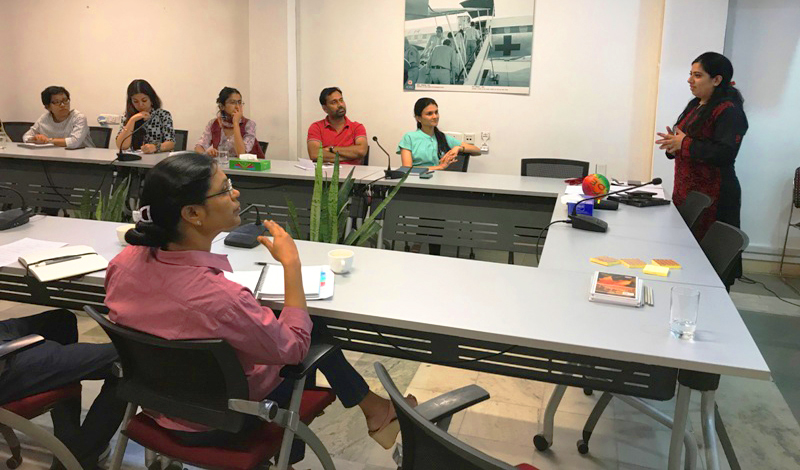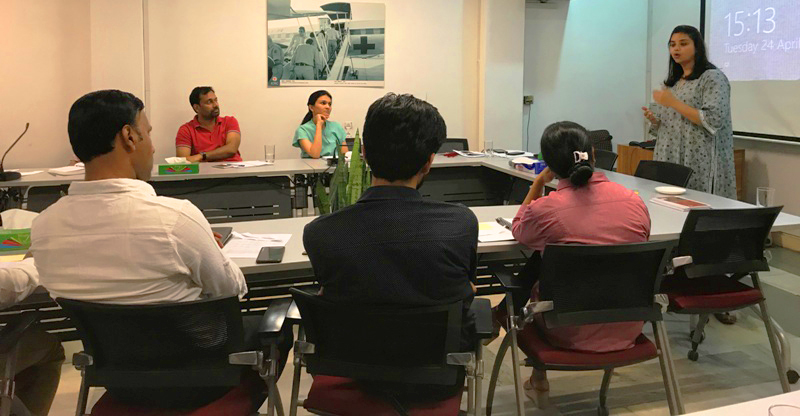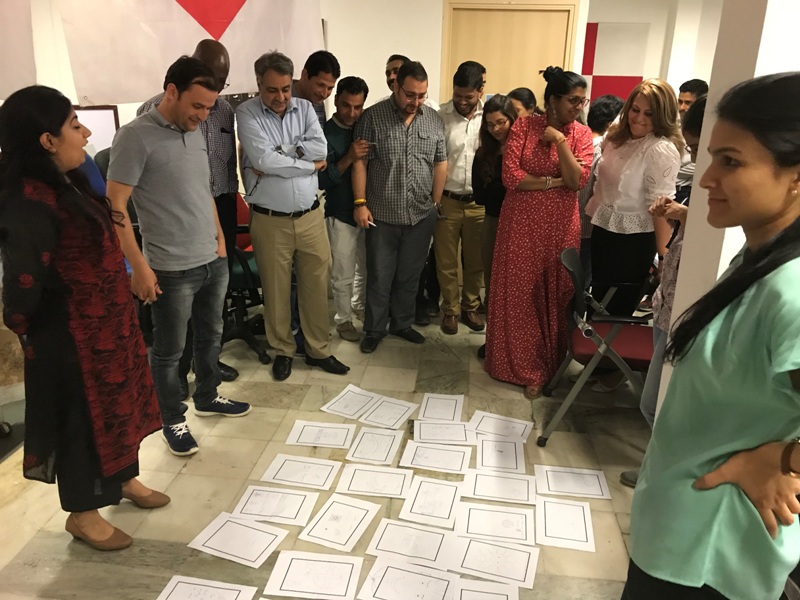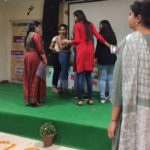On 24th and 25th April, Ms Pratishtha Arora and Ms Esha Chaudhuri visited the Delhi office of an International Geneva-based humanitarian organization for a gender training. The two day training had over 40 employees in attendance, ranging from senior management to housekeeping. The training covered a range of topics with the central theme being gender and then explored power, patriarchy, gender roles and responsibilities, femininities and masculinities, gender stereotypes and the intermingling of these factors in our everyday lives, with special emphasis on these issues at the workplace.


On the first day, the trainers began by breaking the ice, and also tried to eliminate sense of hierarchy among the employees. Various activities were carried out to achieve this. References from popular movies such as ‘Pink’ a movie based on the issue of consent and rape, was widely discussed. The participants were enthusiastic about the topic, and had much to say and learn on the deep entrenched notions of gender in their lives. The methodology was interactive and participatory with the use of games, brainstorming, role plays, usage of audio-visuals and the audience took to it enthusiastically, and were active in engaging with the trainers on issues that they find resonating in their lives.


On the second day, carrying on from the first day on the issue of gender and the cycle of violence that vulnerable people in our society are subject to, the issue of workplace sexual harassment was presented to them. The Sexual Harassment at Workplace Act of 2013 was introduced to them, with a brief history about how it came into being, its provisions, functioning of the internal complaints committee, processing of complaints to the quantum of punishments given to perpetrators. Here, understanding the law seemed a bit of a challenge especially with regards to the protection of male employees since the law does not make any provision for male members of an organisation. Other than that, there were queries on the code of conduct of the organisation and the law in itself. Following this, participants were divided into groups, and discussed different situations which could imply sexual harassment in a workplace. After the completion of the activity the concept seemed clearer on what how and when to act if one witnesses or is subject to such a situation.


The training ended with clearer concepts on gender, and its stereotyping and clear differentiation between facts and myths about gender practices along with its application to the kind of work that the organization carries out – from helping war victims, to sexual violence in conflict zones, to nursing people in war affected regions around the world, and even treating people right in their workplaces. Team GTI has been working across schools, colleges, different professional zones, and even chairing committees to fair treatment of women and restructuring gender relations.




